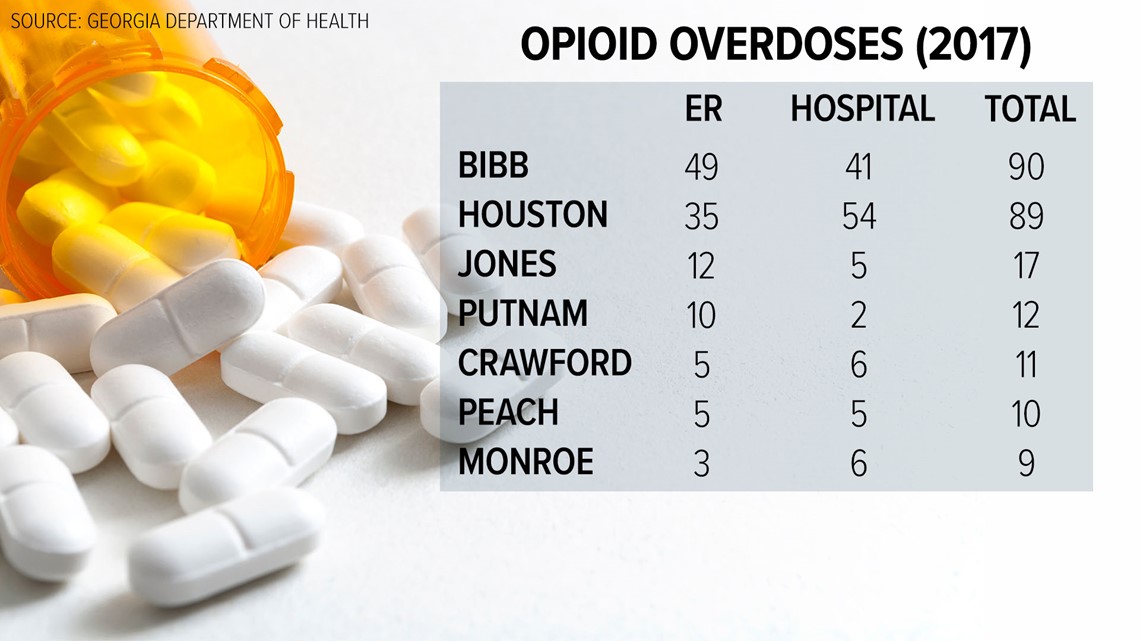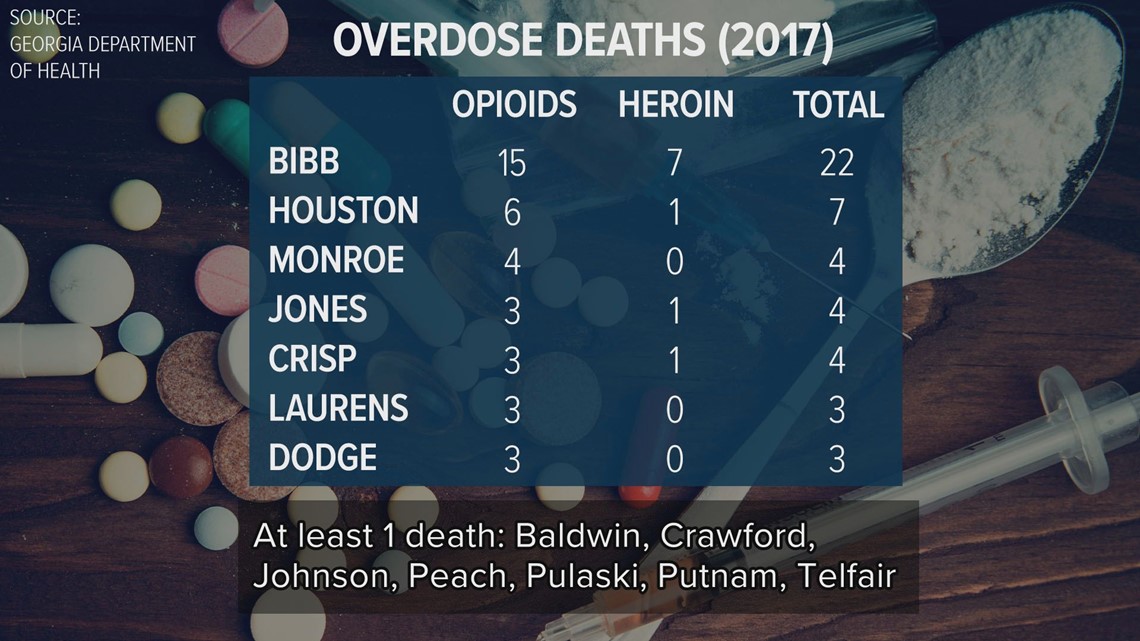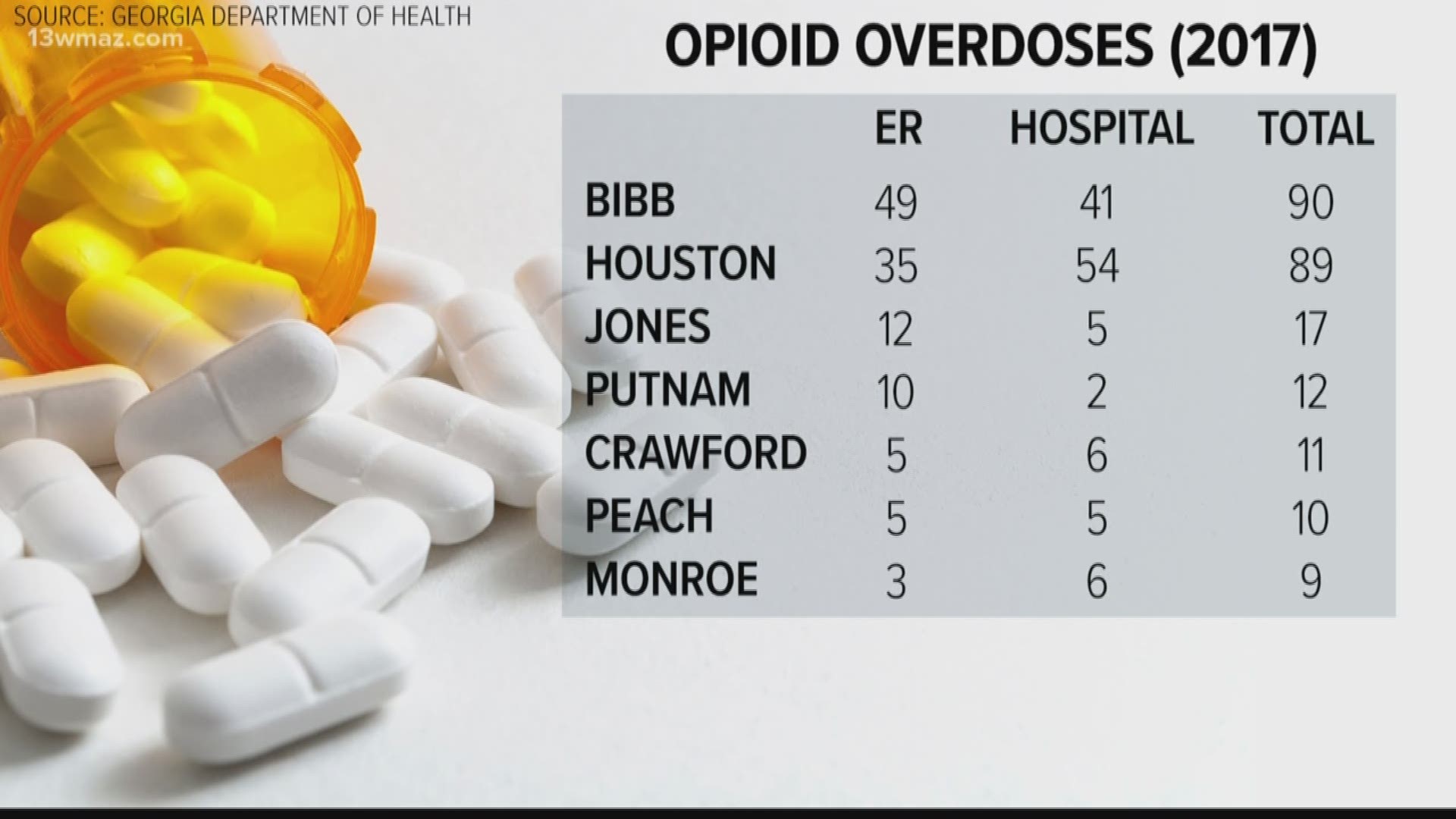MACON, Ga. — Two years ago this week, Central Georgia's emergency rooms saw a wave of patients suffering from cardiac arrest and even organ failure from overdoses.
You may remember that more than a dozen people became ill after taking little yellow pills falsely labeled as Percocet.
Several people died, but in our check with the GBI and local law enforcement, no one could tell us of any arrests of the people responsible.
13WMAZ also discovered some interesting trends since that time.
Jones County Sheriff's Office investigator Captain Jimmy Black says their area didn't see the impacts of the 2017 overdose outbreak, but after more than four decades of investigating drugs, he's seen plenty of change.
"Probably the biggest issue has been the rise of heroin...that we see so much more," Black said.
There's also a larger variety of drugs on the streets too -- even in his quiet, rural county.
"We see a little bit of everything," Black explained. "We see marijuana, cocaine, crack, meth, prescription medication, pills, Oxycodone, heroin."
The overdose risk now is high enough that their cruisers now carry the overdose reversal drug Naloxone. Investigator Barron Hall showed us his.
"We keep it right here in the console. Usually we keep one or two individual, I guess you would say hits of it, and we're all required to keep them in our cars in case of an overdose," said Hall.
They've actually saved a life with it too. Hall says the overdose risk is so real these days, he's hearing of an interesting trend -- addicts are now packing OD reversal drugs.
"They'll have a partner with them and usually they'll carry Narcan, so if they do go off into what you would say, the slang term is, 'the nod' when you start kind of going out of it, they'll hit them with a shot of Narcan to get them back awake and bring them out of it," he said.
Not everyone is that prepared though. The latest overdose numbers for Georgia are from 2017.
As you might expect, Bibb and Houston County showed the highest numbers of ER visits and hospitalizations from opioids that year with 90 for Bibb and 89 for Houston.
More rural counties like Jones, Putnam, Crawford, Peach and Monroe also saw some higher numbers.


Fourteen counties reported deadly overdoses involving opioids or heroin. Bibb led the way with 22 combined, followed by Houston at seven, but then comes Monroe, Jones, and Crisp each with four, and Laurens and Dodge with three fatalities each.


Despite that death risk, people in law enforcement and treatment like Dr. Cesar Figueroa with Coliseum Behavioral Health say they don't see much change.
As Dr. Figueroa put it, "I believe the number of people using opiates out there has not changed significantly. I think the danger just lays with what you can find in the street at any particular time."
Investigator Hall pointed out, "You don't know what you're getting. You're taking a risk. You're gambling your life."
In the meantime, more addicts mean more families touched by drugs.
"I don't think there is any family in the country that is not affected by drugs in one way or another," said Black.
Since the overdose outbreak two years ago, Georgia has launched a tracking system for reported overdoses in hopes the system may help spot overdose trends even more quickly.
If you go through the data in the link above, you'll see that in the past year, Bibb and Houston counties have each shown up in the top five for overdose rates during different months.
Dr. Figueroa says there's another troubling trend they're seeing -- college-aged people are coming in with drug related problems who had only smoked marijuana.
He says when they test them for drugs, they find that pot is being laced with some of the same dangerous drugs found in street pills and heroin like Fentanyl.
If you or a loved one needs help with addiction, we've got resources for you right here. Addiction experts tell us time and time again, the earlier you get help, the better.

